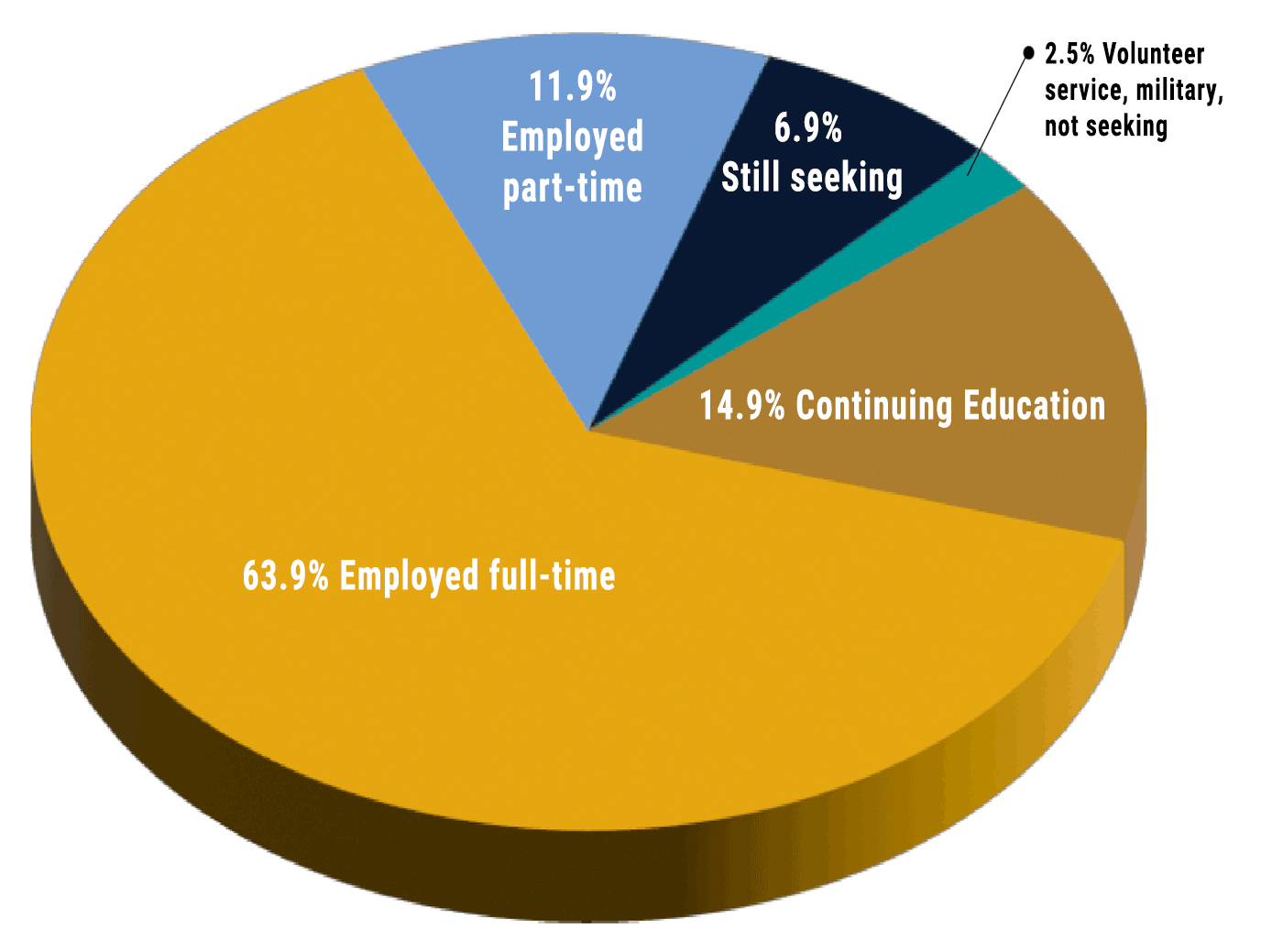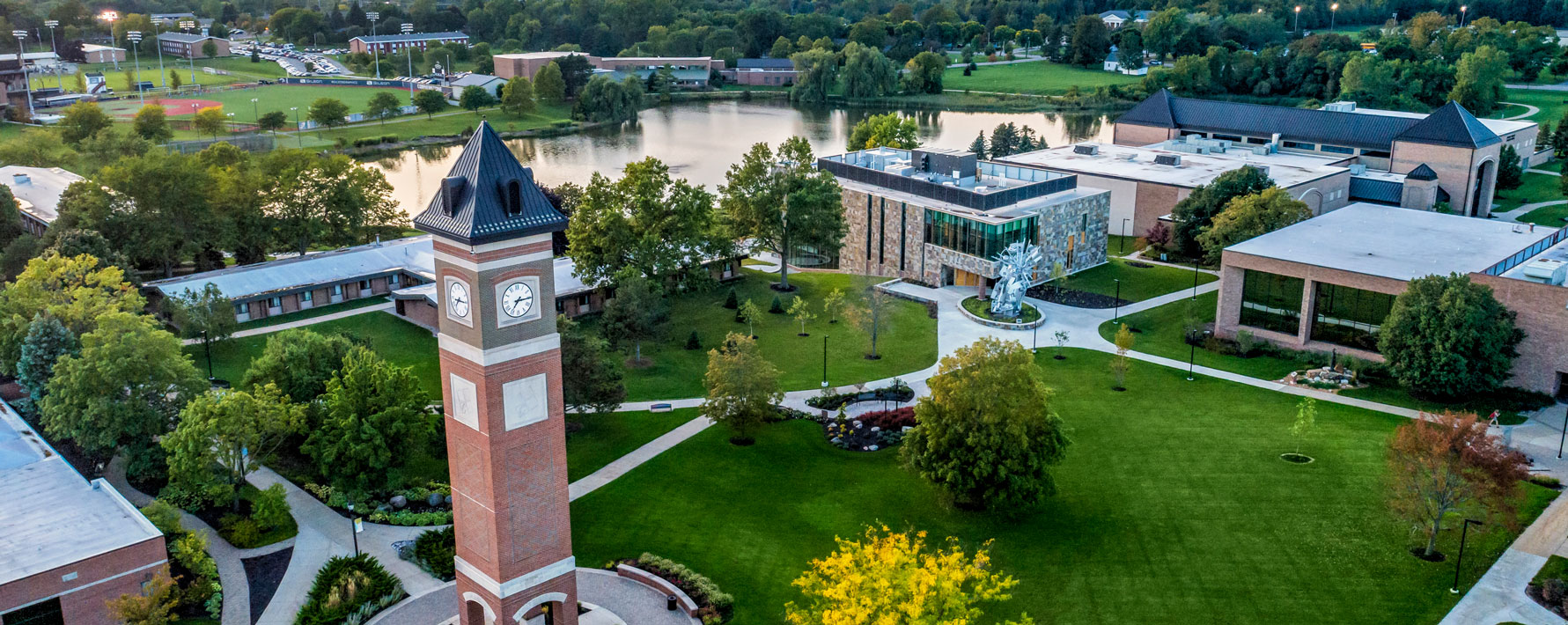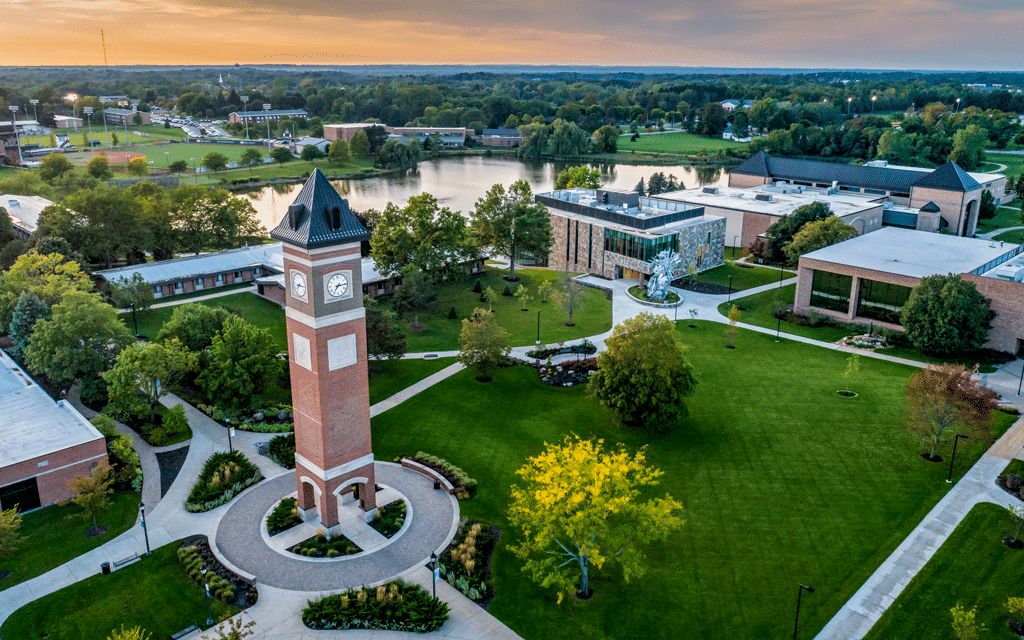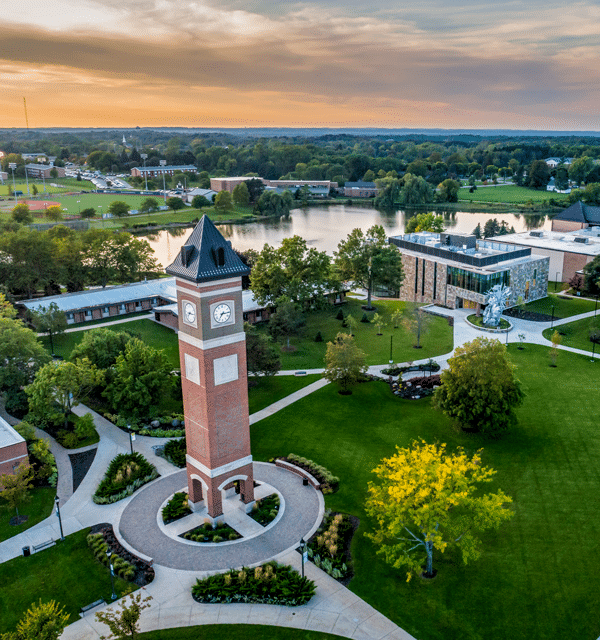University Outcomes
At Cornerstone University, we’re committed to helping students succeed in their goal of completing a college degree. We take seriously our role to equip students with the knowledge, skills, and dispositions they’ll need to thrive both in their present and future vocation.
Student and Academic Learning Outcomes
In our desire to express the value of a Cornerstone education, CU is committed to publishing data regarding retention rates, graduation rates, placement rates, licensure rates and other relevant information related to student and academic learning outcomes of the university.
While reviewing this information, please keep the following in mind:
- All graduation rates are based on up to six years of attendance for bachelor’s programs, which equates to 150% of the normal completion time.
- We have elected not to report transfer-out rates because our University mission does not include providing substantial preparation for students to enroll in another eligible institution without completing or graduating.
- These graduation rates do not identify the reasons why our students withdrew; therefore, students who withdrew for personal or medical reasons are included.
- Graduation rates do not include students who left school to serve in the U.S. Armed Forces, on official church missions, or with a foreign aid service of the federal government, or students who died or were totally and permanently disabled.
RETENTION AND GRADUATION RATES
RETENTION RATES
Institutions must make available to current and prospective students the retention rate of degree-seeking, first-time, undergraduate students as reported to IPEDS. This information is collected in the IPEDS Fall Enrollment Survey.
Retention from Fall 2023 cohort still enrolled as of Fall 2024:
- Full-time 78.3%
- Part-time*
GRADUATION RATES
Each institution must annually make available to prospective and enrolled students the completion or graduation rate of degree-seeking, first-time, full-time, undergraduate students. The completion or graduation rates must be disaggregated by:
- gender;
- major racial and ethnic subgroup (as defined in IPEDS);
- recipients of a Federal Pell Grant;
- recipients of a subsidized Stafford Loan who did not receive a Pell Grant; and
- students who did not receive either a Pell Grant or a subsidized Stafford Loan.
These disaggregated rates are to be disclosed only if the number of students in each group is sufficient to yield statistically reliable information and not reveal personally identifiable information about an individual student.
This information is collected in the IPEDS Graduation Rates Survey.
PERCENT OF Bachelor’s Degree seeking students from the 2018 COHORT WHO graduated BY AUG 31, 2024:
- Total (men and women) 62.7%
- Men 57.7%
- Women 66.0%
- U.S. Nonresident 91.7%
- Hispanic / Latino 66.7%
- American Indian or Alaskan Native*
- Asian 60%
- Black or African American 35.3%
- Native Hawaiian or Other Pacific Islander*
- White 63.3%
- Two or More Races 100%
- Recipients of a Pell Grant 58.1%
- Recipient of a subsidized Stafford Loan (but no Pell Grant) 59.4%
- Neither Pell Grant nor Stafford Loan 68.4%
DESTINATION RATES
Destination Rates are on-campus, undergraduate graduates reporting a primary status of employed full-time, employed part-time, continuing education, volunteer service, military service, or not seeking.
Respondents reporting a primary status of:
- Employed full-time 63.9%
- Employed part-time 11.9%
- Continuing Education 14.9%
- Volunteer service, Military service,
Not seeking 2.5% - Still seeking 6.9%
- Destination Rate 93.1%
- Knowledge Rate 84.2%

The graduating class from the 2023-2024 academic year was surveyed about their post-graduation destinations up to six months after degree completion. Data was also gathered from public record via LinkedIn. The knowledge rate is the percentage of the graduating population for which we have obtained data.
LICENSURE/CERTIFICATION EXAM PASS RATES
SCHOOL OF BUSINESS PERFORMANCE RESULTS
STUDENT-ATHLETE OUTCOMES
FALL 2018 COHORT GRADUATION RATES
General Student Body
- Athletes 65.9%
- Non-Athletes 57.4%
Athletes By Gender
- Male 62.2%
- Female 68.6%
Athletes by Sport
- Baseball 40%
- Basketball 62.5%
- Cross Country & Track 61.9%
- All Other Sports 68.6%
Athletes by Ethnicity
- Non-Resident Alien 100%
- Hispanic/Latino 80.0%
- American/Alaska Native*
- Asian*
- Black or African American 40%
- White 64.6%
- Multiple*
FOUR YEAR AVERAGE FALL 2015–2018 GRADUATION RATES
General Student Body
- Athletes 61.7%
- Non-Athletes 60.6%
Athletes By Gender
- Male 59.5%
- Female 63.1%
Athletes by Sport
- Baseball 43.8 %
- Basketball 66.1%
- Cross Country & Track 64.4%
- All Other Sports 61.4%
Athletes by Ethnicity
- Non-Resident Alien 77.8%
- Hispanic/Latino 56.3%
- American/Alaska Native*
- Asian*
- Black or African American 31%
- White 64.4%
- Multiple*
*Rates are disclosed if the number of students is at least 5.







